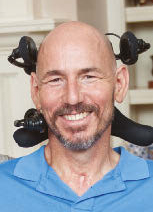By DAN HALL
Navigating the public vs. private vs. homeschool education debate
“Children are a heritage from the Lord, offspring a reward from Him.” – Psalm 127:3
As a pastor, I’ve been asked numerous times, “Should Christians put their children in public school?”
It’s an honest and legitimate question. But it wasn’t one I had ever wrestled with. I was raised in a great home and dynamic church, had a fantastic public school experience, began at a secular college and completed at a Christian one (sic ’em, Bears! 2021 College Basketball National Champions!). I came here in 1986 as a new pastor, got married, then became a father of six children. Our church grew with young families who faithfully and regularly fulfilled God’s command to “be fruitful and multiply.”
So, fairly quickly, I found myself wrestling with the question. This was complicated by the fact that I had a very large community of homeschoolers in our fellowship. We also had an equal number of private and public school attendees.
Full disclosure: Our children were in all three settings. Both as a pastor and as a parent, I discovered that whichever one you choose, you need to know not just the reason for your decision, but the challenges that decision will entail.
In other words, choose your poison, know your antidote.
For instance, homeschooling provides great control of both content and context. But it also requires focused parental intentionality to ensure the child is intellectually and socially educated. I’ve seen the beautiful outcome of success as well as the painful disaster that results from neglecting this focus.
Private school allows a merger of strong cultural and social development with a managed curriculum, affirming a Christian worldview. But it can also lead to a pharisaical and detached view of a culture we are called to reach.
Public school is steeped with challenges to developing faith, but is a great proving ground for one’s faith and awareness of God’s grace in the world. Many godly young people have emerged passionate to impact their culture.
So what’s my point? If you know what challenges you will encounter, you know what measures to take to mitigate, eradicate or navigate the negative impact of those challenges.
Choose your poison, know your antidote
There’s one primary antidote to each: intentional parental engagement. Let me suggest three things I have seen successful parents do:
◼ Align your reason with purpose, not convenience. Where we place our children should be motivated by a clear set of values. I’ve seen many parents sacrifice in each setting, and when I asked why, they listed conviction, a stated purpose, and most often, scripture as the reason for their decision.
◼ Assess the strengths and weaknesses of your child, the school choice, and yourselves. As we prayerfully consider our decision, the Spirit will give insight on the best way for our child to become all God has created them to be. Be intentional to seek wisdom so that you will have a clear strategy to affirm strengths and fortify weaknesses.
◼ Never, ever relinquish your parental privilege, responsibility and joy. For the believer, the role of school and even the church is not to replace the parent or the home. Rather, these entities provide support and context for the values and vision assigned to us parents. We stay in the driver’s seat both for the child’s personal development and their divine purpose.
I am privileged that four of my children are educators. As my daughter Lydia told me today, “I can’t do my job successfully at school if parents don’t do their jobs at home.”
Stand tall, mom and dad! The Lord will give us wisdom and strength as we follow Him!
Dan Hall is an executive and strategic coach to leaders and executive teams. He also works with organizations on team building, conflict resolution and communication skills. He and his wife, Hazel, have six children and four grandchildren. You can reach him at Dan@OnCourseSolutions.com.
